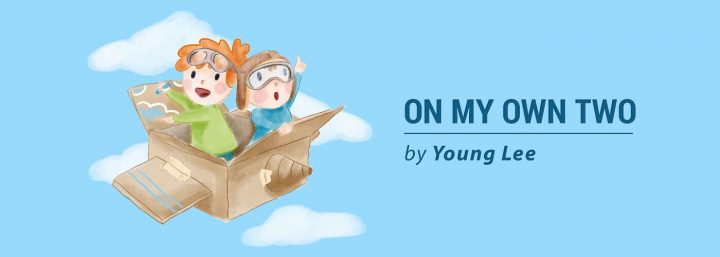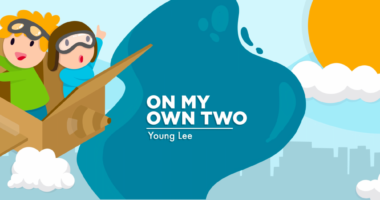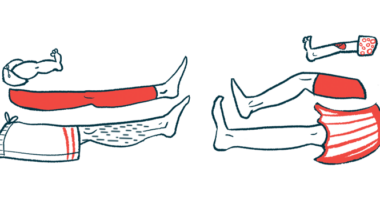Invisible Disability Clashes with Public Perception

Column by Young Lee
I was the only Asian-American on my college study-abroad trip to China that year. I couldn’t speak much Mandarin at all, but still, I could recognize the absurdity when a classmate suggested I hold up the sign we created that said in Chinese, “Please point us in the direction of the nearest Kentucky Fried Chicken.”
It was an honest plea. We weren’t trolling. Why we needed a sign that asked for directions to KFC is perhaps a story for another day, but I remember thinking, “Only a non-Asian would be able to hold up such a sign, in the middle of Nanjing, and be able to expect an earnest response.”
After all, having spent a few weeks in China by then, I had found that most folks just assumed I was a Chinese native unless I opened my mouth to speak. In China, my American identity was mostly invisible.
Another part of my identity is also invisible — a part that doesn’t require a backdrop of other folks of Chinese ancestry. That’s my identity as someone affected by Charcot-Marie-Tooth (CMT).
CMT certainly isn’t the only invisible disability. And CMT isn’t invisible for everyone affected. However, I’ve found that my fairly mild case is invisible to the vast majority of people I encounter.
I can walk for quite a while without assistance, albeit with a lumbering gait that looks like an anchored ship rocking back and forth with the tides. I don’t have a wheelchair, I don’t use a cane, and I haven’t used ankle-foot orthoses in more than 10 years. But like a Chinese-American who doesn’t speak Chinese wandering around China, the experience is a bit mixed.
There are a few perks, many of which I’ve taken for granted. I don’t get the odd stares in public like many others in the disabled community, and I have never experienced random people coming up to me wanting to pray for my healing. Having the choice of whether to disclose my identity as a member of a disabled community in the workplace is also a privilege. And simply not having to explain myself and my disability on a daily basis is a luxury.
However, I also know the awkwardness of having to ask for help when I know I don’t fit the image most people have of a person with disabilities. And I’ve had people approach me, smiling, to tell me I’m not disabled when I have a doctor’s note to prove it.
I’ve heard similar stories from others. In fact, when I spoke with Jamal Hill, a Paralympic swimmer with CMT, a few weeks ago, he said being accused of fraud because he doesn’t fit the archetypal image of someone with a disability is one of his greatest fears.
What do people think of when they imagine a person with disabilities? Based on some news articles, it seems as if the perception is that we shouldn’t jet ski or practice karate — even though I have done both before. Should we not continue to try to push ourselves, to live our lives as we wish, and not let our disabilities limit us?
Should we second-guess ourselves for fear of harassment whenever we use resources such as handicapped parking? Of course not. We shouldn’t feel the need to play any part other than our own. We are as diverse as any other group and I think all of us should try to understand that there are nuances to everything.
***
Note: Charcot-Marie-Tooth News is strictly a news and information website about the disease. It does not provide medical advice, diagnosis, or treatment. This content is not intended to be a substitute for professional medical advice, diagnosis, or treatment. Always seek the advice of your physician or other qualified health provider with any questions you may have regarding a medical condition. Never disregard professional medical advice or delay in seeking it because of something you have read on this website. The opinions expressed in this column are not those of Charcot-Marie-Tooth News or its parent company, Bionews Services, and are intended to spark discussion about issues pertaining to Charcot-Marie-Tooth.







Leave a comment
Fill in the required fields to post. Your email address will not be published.